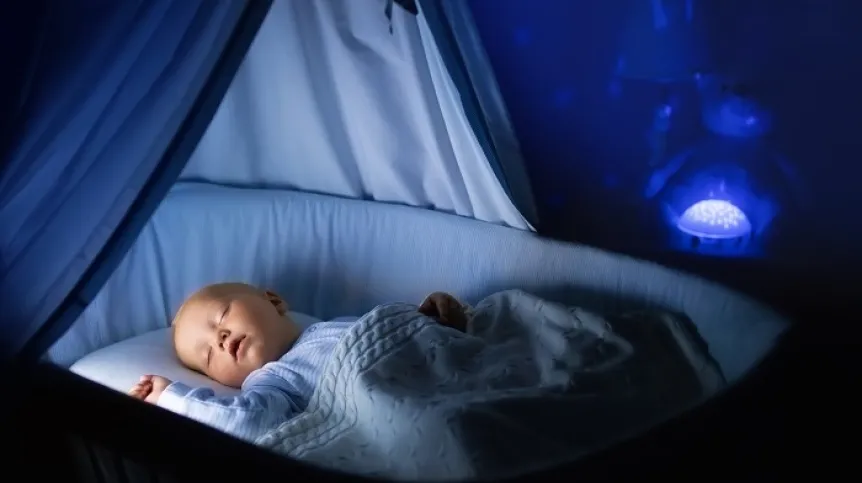
A team from the Faculty of Power and Aeronautical Engineering of the Warsaw University of Technology is working on a device for monitoring the vital functions of infants during sleep, and thus preventing sudden infant death syndrome.
The project team members are students Julia Wilk, Mikołaj Miszczak, Michał Skibiński and Jan Piliszczuk, and scientists: Dr. Edyta Rola and Dr. Cezary Rzymkowski, a professor at the Warsaw University of Technology.
SIDS (sudden infant death syndrome), also known as cot death, is the sudden, unexplained death of a child under the age of one year. SIDS primarily happens during sleep (but not necessarily in bed or at night). This syndrome is associated with a decrease in the concentration of oxygen in the blood - the child stops breathing. SIDS risk factors include sleeping on the stomach or side, overheating, tobacco smoke.
A team from the Faculty of Power and Aeronautical Engineering of the Warsaw University of Technology is working on an invention that will detect SIDS. The sensor system consists of a roll-out pressure mat placed in the child's bed, as well as a band/bracelet adapted to the size of the child's hand, worn on the wrist - similar to those worn by adults to track the pulse. The measuring and data analysis set consists of a transmitter and a receiver.
'Our device consists of a sensor system with an information processing system aimed at identifying the occurrence of cot death in an infant', explains Mikołaj Miszczak, quoted in the Warsaw University of Technology press release 'The system is based on a neural network with a sequential architecture, which allows you to adjust the criteria for identifying the occurrence of a life-threatening situation individually for a specific infant. This allows for a more accurate detection than in other devices used so far',
'The transmitter contains the heart of the system, a minicomputer that performs calculations and controls parameter readings', says Julia Wilk. 'We are thinking about the design of the receiver, but it will certainly be something no bigger than the size of an air freshener, so that it can be discreetly placed in a house or flat'.
In the event of an abnormal reading, the receiver will emit a signal. In addition, carers will be alerted by the application about the probable nature of the threat and instructed on further actions: how to provide direct assistance and how to get to the nearest medical facility.
The project is in the concept phase, but it has already been awarded in the Student-Inventor competition organized by the Kielce University of Technology. Out of 123 submitted projects, five were awarded, including the one from the Warsaw University of Technology.
'We are aware that our project is in line with the current trend of personalised medicine and its development would contribute to increasing parents’ peace of mind and children’s safety', emphasises Julia Wilk. 'We see the cooperation between engineering and medicine as extremely important, and now even necessary. In the future, we want to verify the quality of our idea and move from the conceptual to the test phase'.
In April, the student team from the Faculty of Power and Aeronautical Engineering of the Warsaw University of Technology won a gold medal at the International Exhibition of Inventions in Geneva and a special award from Thailand for the best international invention or innovation, the faculty reports on social media.
PAP - Science in Poland
lt/ zan/ kap/
tr. RL













